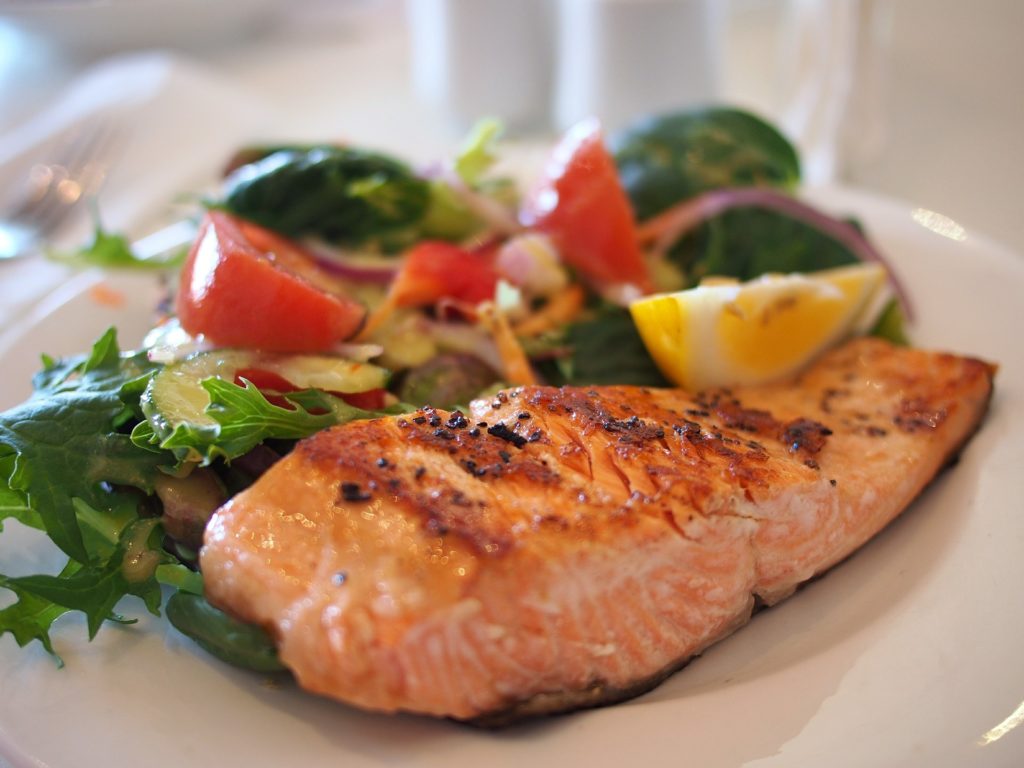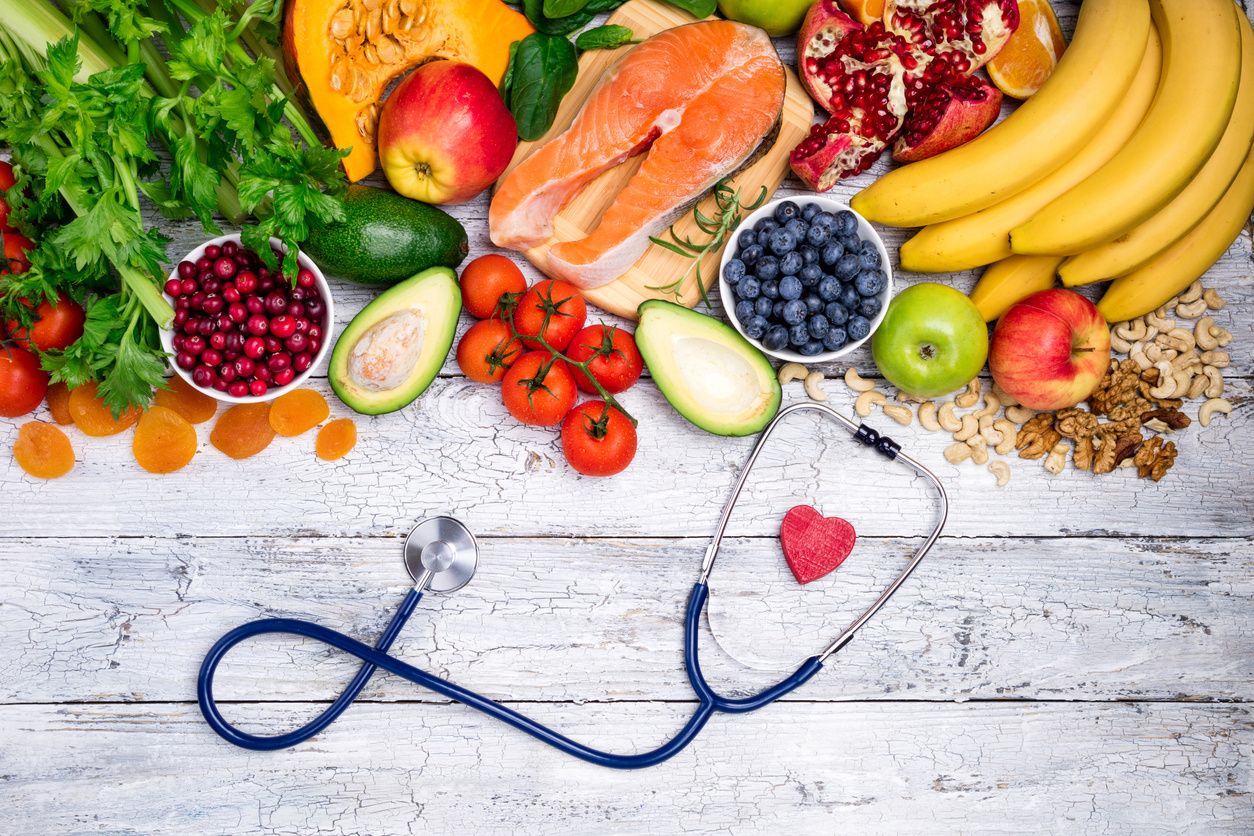Living in a world where the prevalence of obesity-induced cardiovascular diseases is constantly increasing, it is necessary to highlight the importance of heart healthy food in our life. An unhealthy diet is recognized as a risk factor for many cardiovascular diseases, including:
• Coronary heart disease
• Cerebrovascular disease
• Hypertensive heart disease
• Peripheral arterial disease
• Deep venous thrombosis and pulmonary embolism
• Other cardiovascular diseases

The main problem with cardiovascular diseases is the absence of symptoms. A heart attack or stroke may be the first warning of an underlying disease. As WHO claims, symptoms of heart attack are: pain or discomfort in the center of the chest, or pain or discomfort in the arms, left shoulder, elbows, jaw, or back, so it is advisable to visit the doctor after noticing those symptoms. Nevertheless, those diseases could be prevented by following diet suggestions:
1. Eating less unhealthy fat, such as cholesterol and saturated fat
The increase in plasma cholesterol levels leads to binding of cholesterol for walls of arteries, which become narrowed, and the blood flow is slowed down.
2. Paying attention to the number and size of portions you eat
Calories can be reduced in meals by grilling, steaming, baking, or microwaving, but frying food in a lot of oil should be avoided. If the food does not have satisfying taste, healthy herbs may be added, which include: parsley, thyme, rosemary… The ideal daily meal plan consists of 5 meals: breakfast, dinner, lunch and two snacks.
3. Reducing the consumption of sodium
Contemporary dietary guidelines recommend limiting sodium intake to less than 2,3 g daily, which is equal to about 1 teaspoon of salt. Excess sodium in the bloodstream pulls the water in the blood vessels in order to dilute the sodium concentration. As a result, the amount of blood inside the blood vessels increases, as well as the blood pressure.
What heart-healthy food should be eaten?
Blueberries

Blueberries are the major source of anthocyanins, a natural pigment. They have numerous heart beneficial effects, including vasoprotective, anti-inflammatory, antioxidative effects, as well as inhibition of platelet aggregation.
Dark chocolate

The recommended minimum amount of cocoa beans to be found in chocolate that is healthy for the heart is 70%. A higher percentage of cocoa means a higher amount of flavanols, which are responsible for the beneficial effects of dark chocolate on the heart. By stimulating the endothelium to produce nitric oxide (NO), flavanols lower the resistance to blood flow and therefore reduce blood pressure.
Fish

It is preferable to eat it twice a week, in order to get enough supply of omega-3 fatty acids. Omega-3 fatty acids are essential nutrients that regulate levels of triglycerides, reduce platelet aggregation, lower blood pressure, and are considered as
Whole grains
While whole grains high in viscous fiber (oats, barley) decrease serum LDL cholesterol and blood pressure, grains high in insoluble fiber (wheat) lower glucose levels and blood pressure.
Walnuts
According to recent studies, walnuts have been proven effective in lowering total cholesterol levels, LDL cholesterol level, and triglycerides. Walnuts also contain alpha linoleic acid that acts as an anti-inflammatory agent, and they reduce the risk of
Tomato
Consumption of tomato decreases levels of oxidized LDL, reduces the risk of stroke and markers of inflammation, lowers the risk of developing hypertension in patients with pre-high blood pressure.
Garlic
By reducing the hardening of the arteries and blood pressure, lowering LDL levels and total cholesterol blood levels, garlic may be helpful in preventing cardiovascular events.
Broccoli
Broccoli is known to be vegetable rich in essential vitamins and minerals. In addition, sulforaphane, found in broccoli, exerts antioxidant and anti-inflammatory effects, which may lead to prevention of blood vessel lining.
Freshly squeezed orange juice

Besides the fact that it is delicious, freshly squeezed juice orange is one of the sources of vitamin C, a natural antioxidant. Moreover, it has been clinically proven to decrease the hardening of the arteries up to 30 percents, and enables normal blood flow.
There is also a diet specially created to lower blood pressure and risks of cardiovascular events, the DASH diet (an acronym for Dietary Approaches to Stop Hypertension). It is based on reducing sodium intake, limiting processed food, while at the same time increasing fruits and vegetables. Although the balanced diet, together with regular exercise and healthy lifestyle plays a role in the prevention of cardiovascular diseases, sometimes it is required to take medications or supplementations if you want to stay healthy and live longer.

